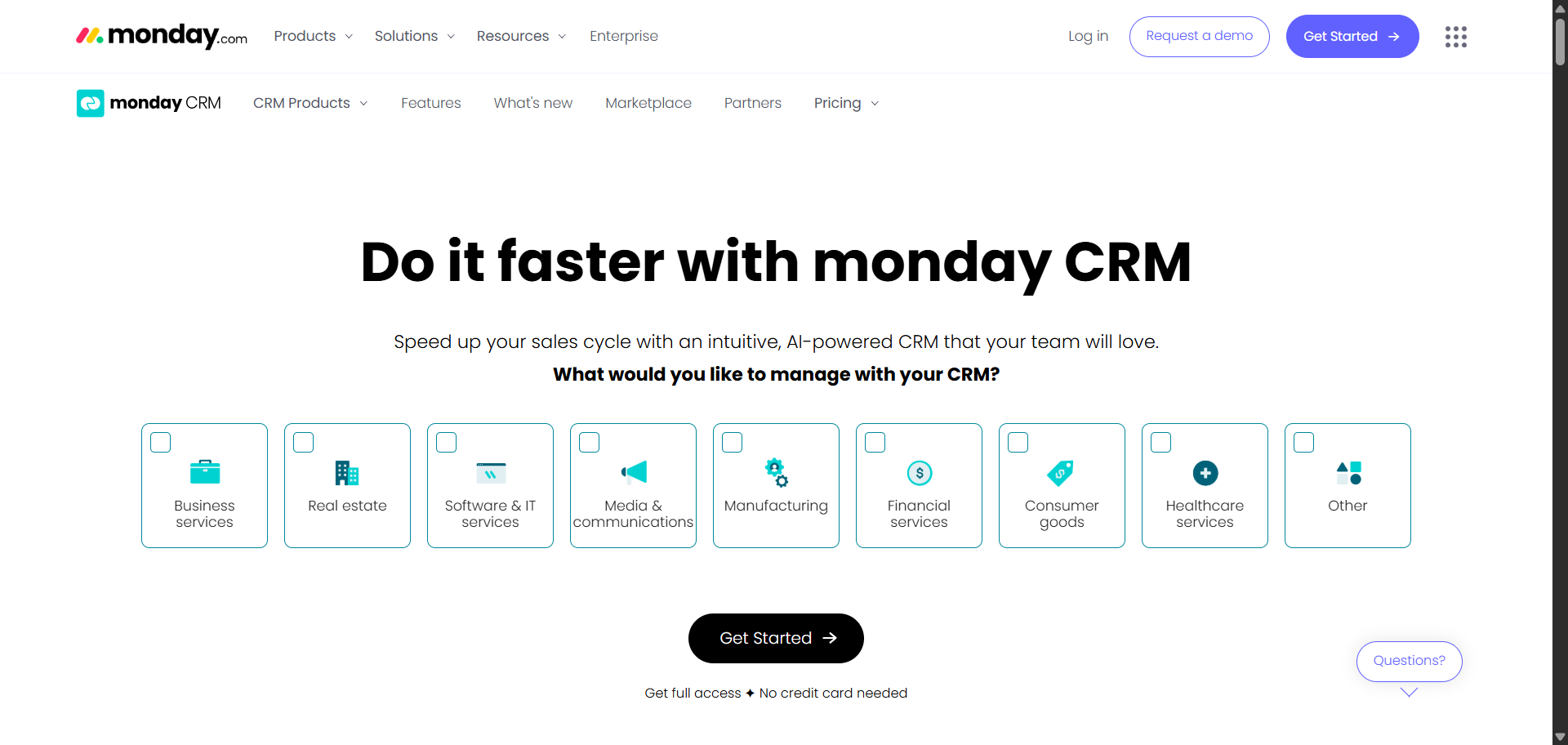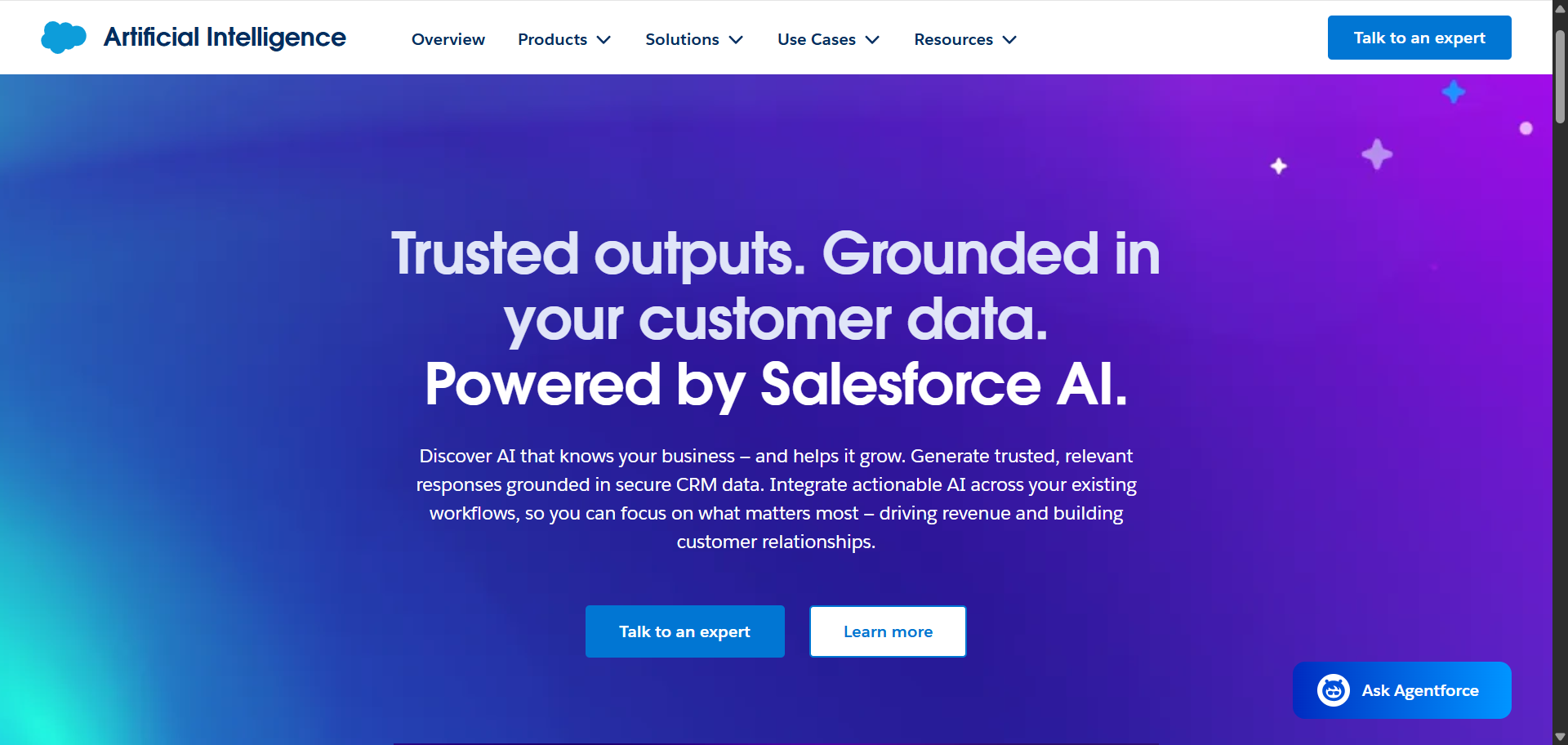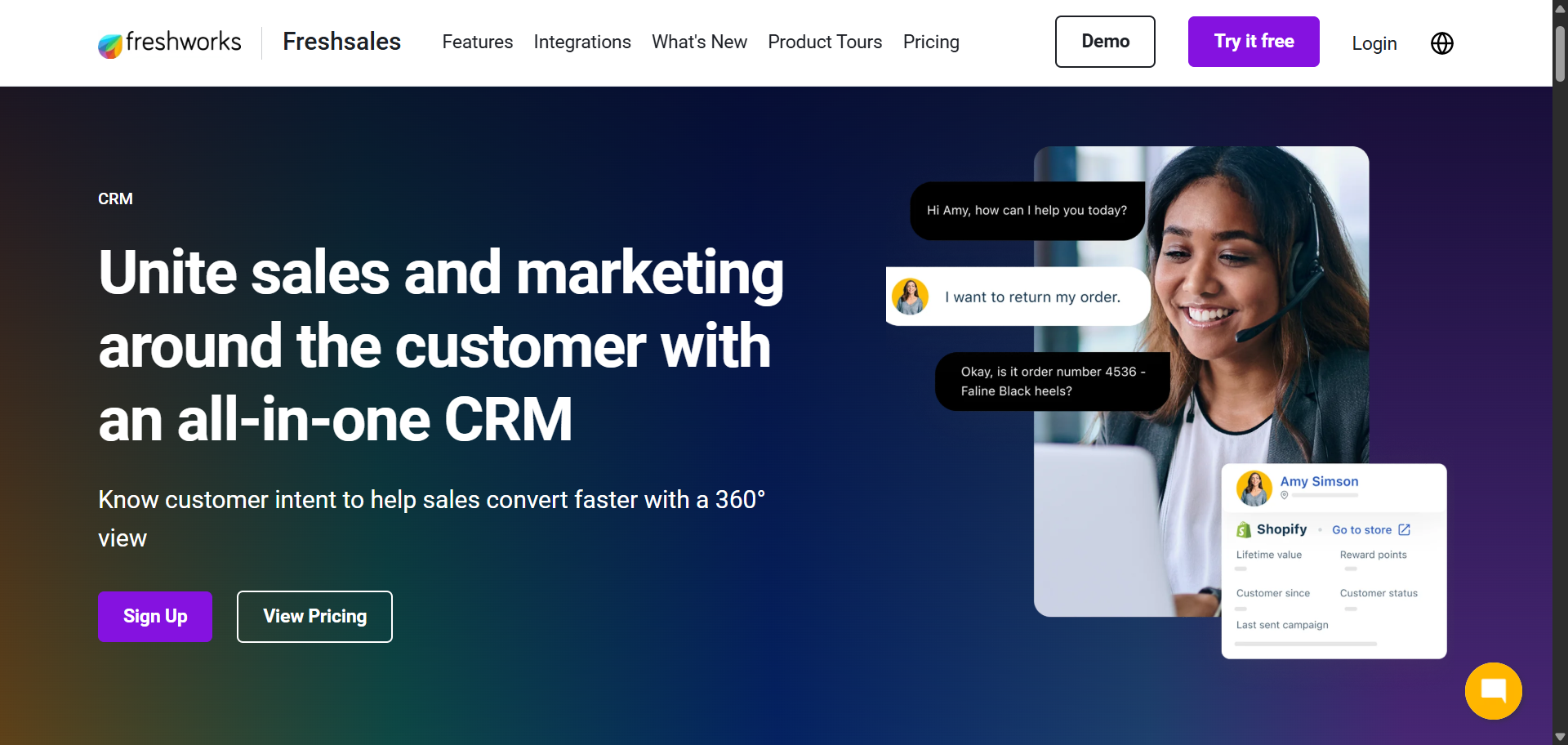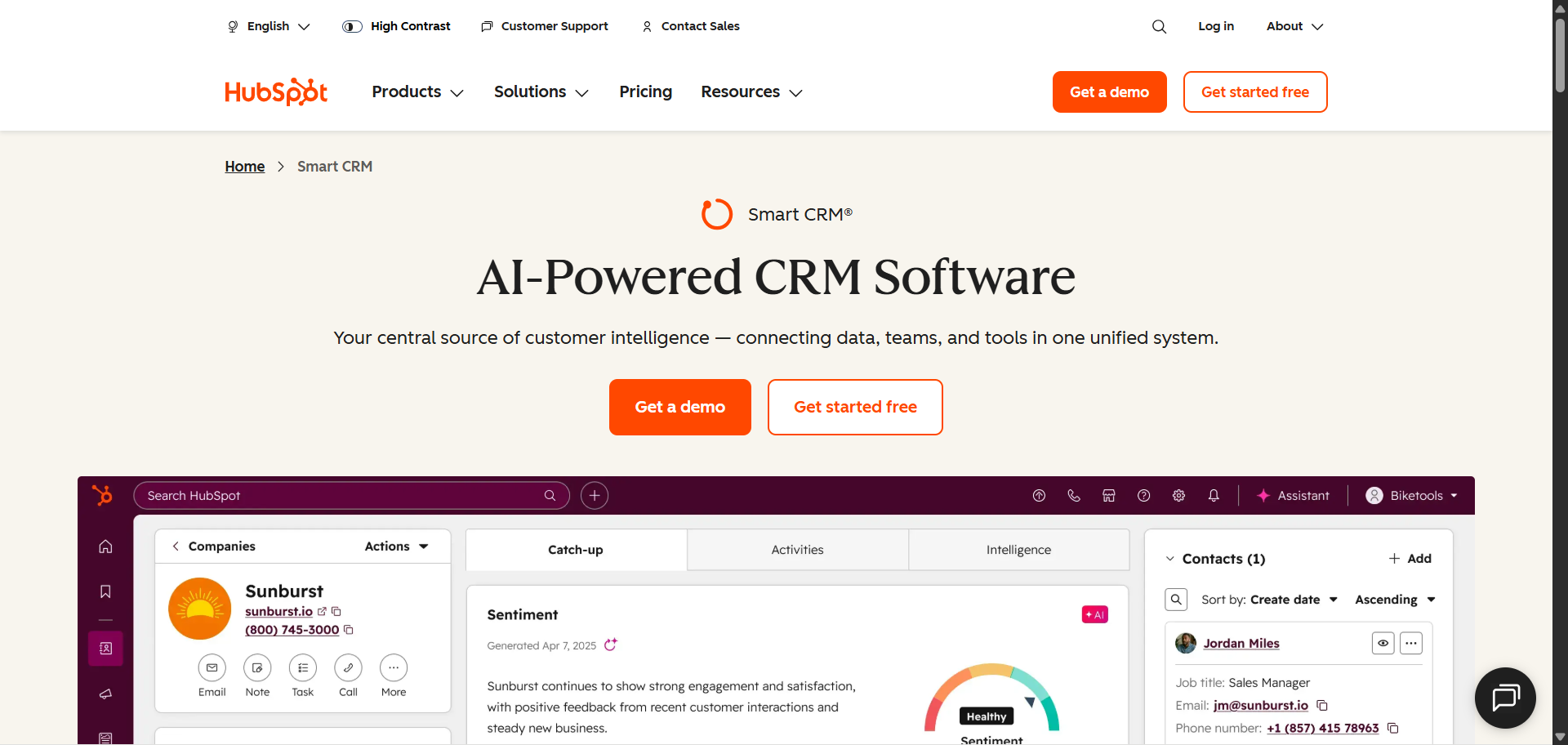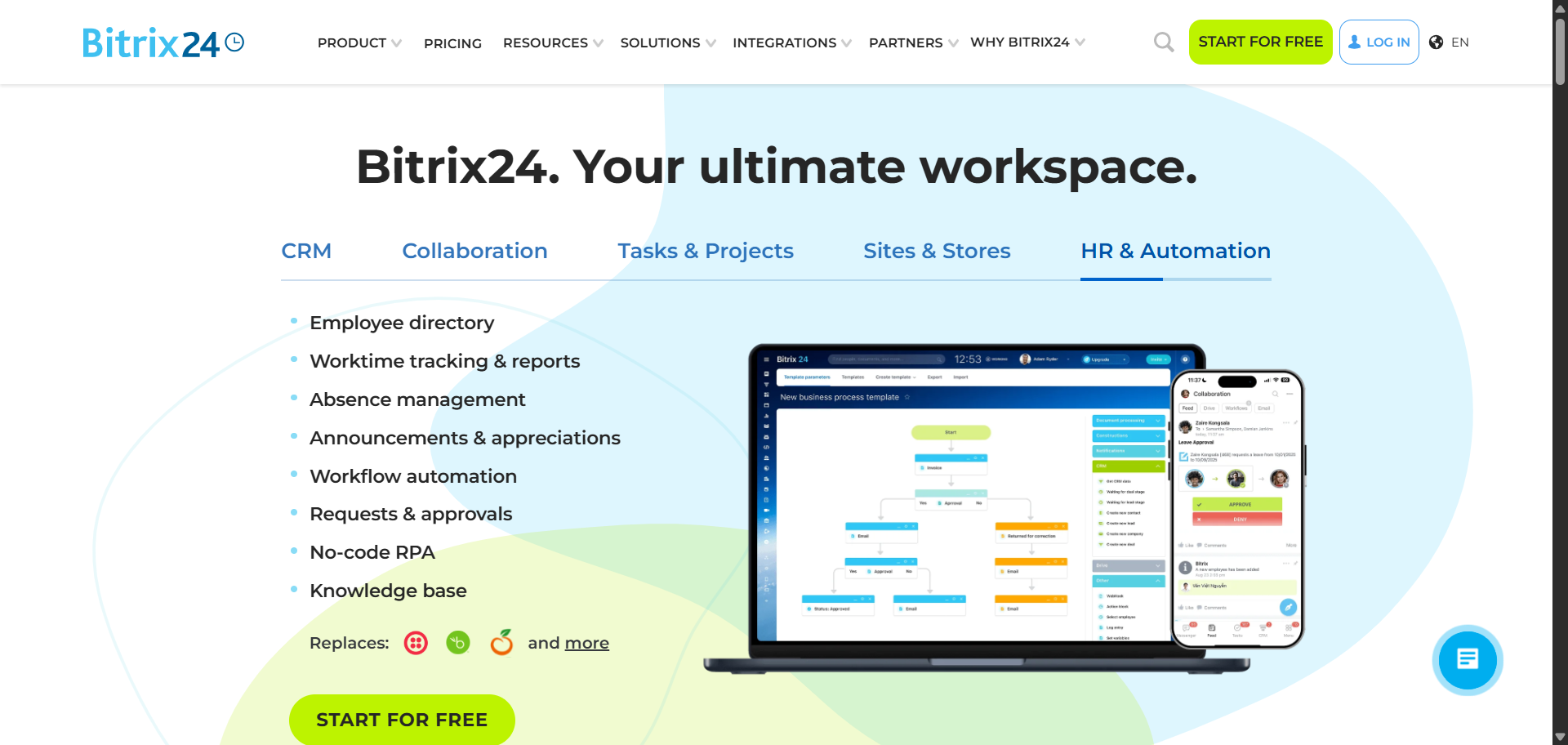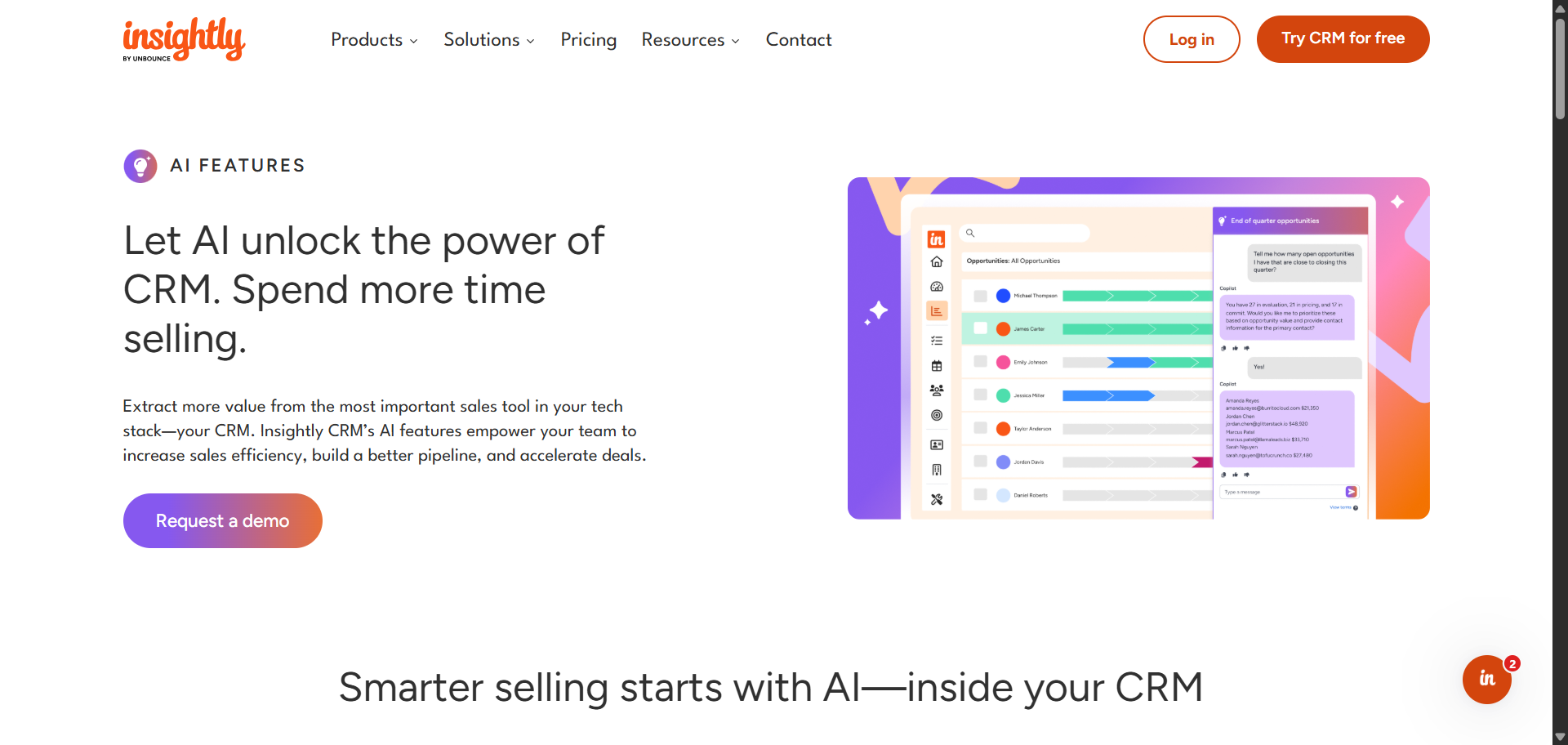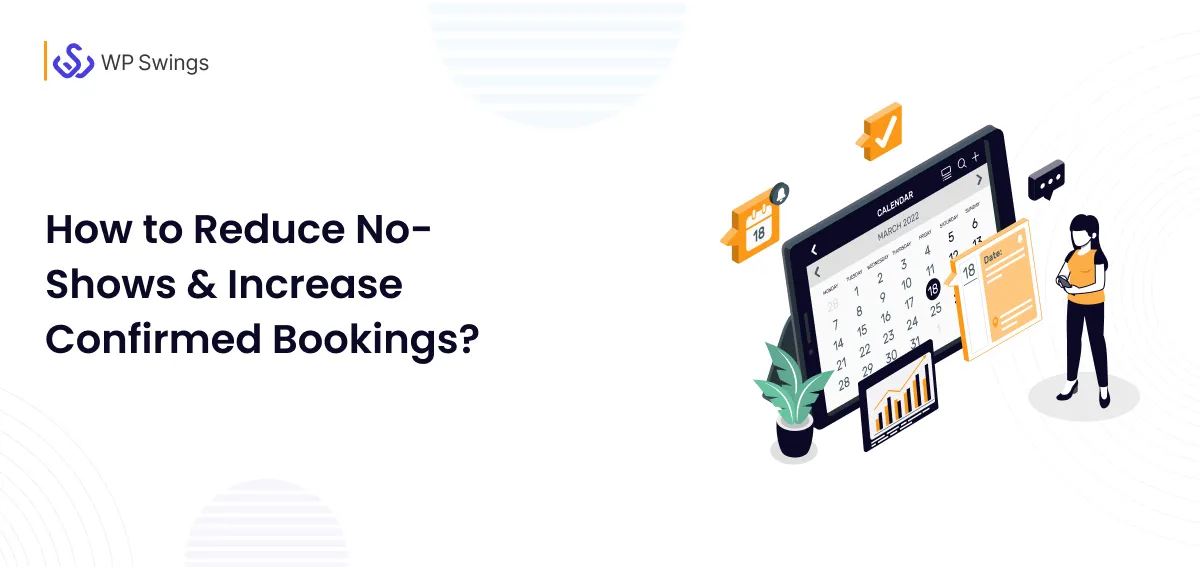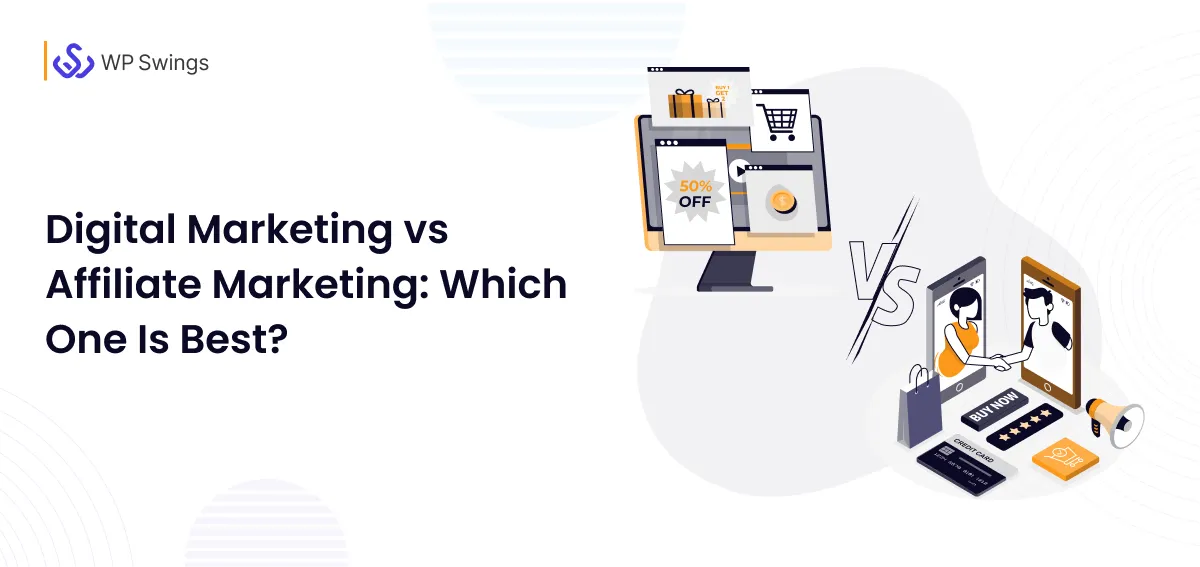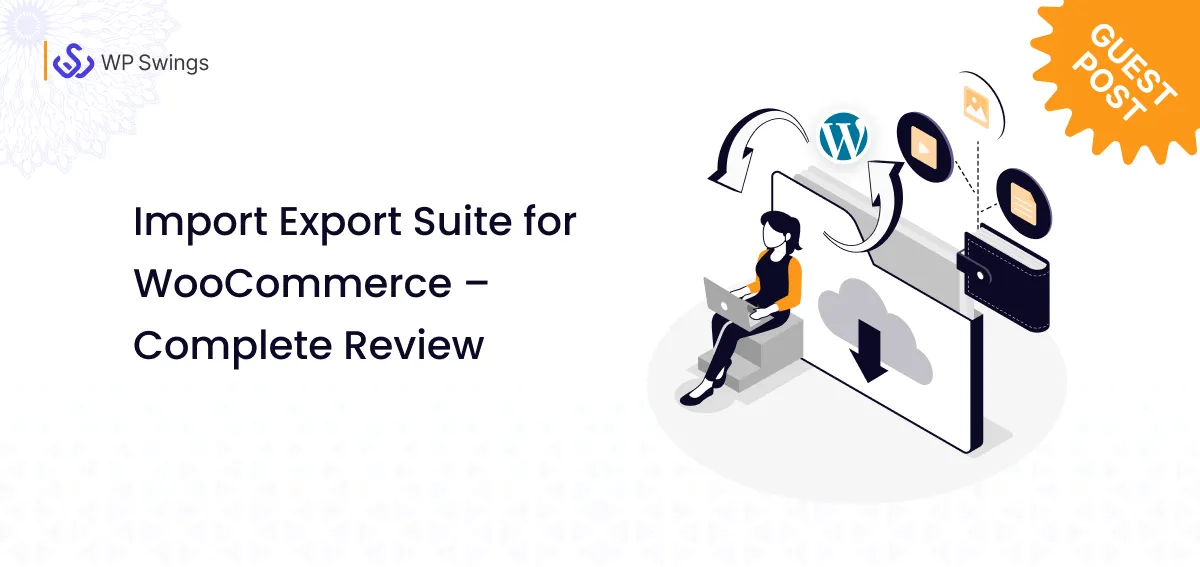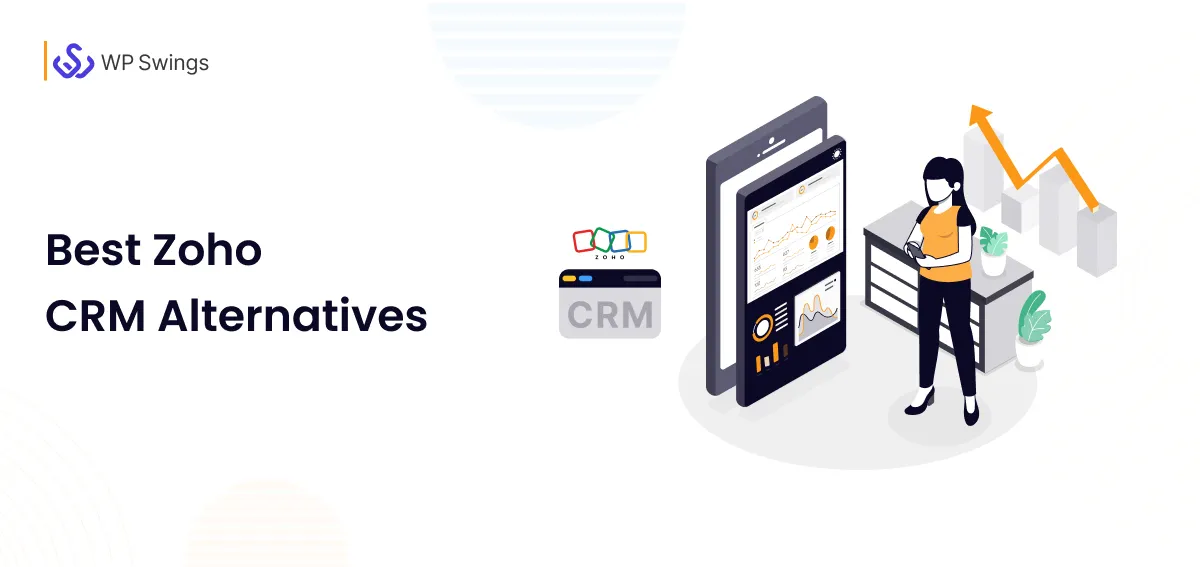
Choosing the right Customer Relationship Management (CRM) platform is one of the most important decisions for any growing business.
A CRM does far more than store contacts, it helps you nurture relationships, automate repetitive tasks, and turn valuable data into actionable insights. Zoho CRM has long been a popular option thanks to its affordability, flexibility, and AI assistant “Zia.”
However, as your business expands and technology evolves, you may find yourself asking: Is Zoho CRM still the best fit for my team?
Whether it’s limited AI capabilities, rising costs, complex customization, or the need for deeper integrations, exploring Zoho CRM alternatives can reveal better options tailored to your business goals.
In this guide, we’ll uncover why many companies are switching, highlight the best AI-powered Zoho CRM alternatives, and help you compare and choose the one that fits your sales, marketing, and customer success needs perfectly.
Table Of Contents
Why Consider Zoho CRM Alternatives?
While Zoho CRM remains a trusted solution for many businesses, several factors can make exploring zoho crm alternatives a smart move. As teams grow, some users find Zoho’s interface increasingly complex and its customization options overwhelming without technical support.
Pricing can also escalate quickly when adding advanced features or more users, making it less cost-effective for scaling organizations.
Certain businesses report limitations in Zoho’s AI capabilities, such as predictive analytics and advanced automation, which newer CRM platforms now offer more intuitively.
Others seek smoother integrations with best tool for marketing and sales, as well as faster and more responsive customer support.
For companies aiming to simplify workflows, leverage smarter AI-driven insights, and provide the best user experience, considering Zoho CRM alternatives can unlock more efficiency, scalability, and innovation.
Comparison Table to Compare The Best Zoho CRM Alternatives
| Software | Best For | Starting Price | Free Plan | Key Features |
|---|---|---|---|---|
| Monday CRM | CRM with AI-powered tools | $17/user/month | Yes | AI email generator, custom pipelines, deal & contact management, sales forecasting, automations |
| Salesforce | Enterprise-grade CRM with AI suite | $25/user/month | No | Lead & opportunity scoring, AI conversation coaching, predictive forecasting, deep analytics |
| FreshSales | CRM with AI-powered insights | $9/user/month (Growth) | Yes | AI contact scoring, sales sequences, visual pipelines, forecasting insights, workflow automation |
| HubSpot CRM | Smart CRM with advanced AI features | $15/user/month (Starter) | Yes | Data enrichment, AI agents, custom workflows, predictive lead scoring, reporting, duplicate detection |
| Pipedrive | Pipeline management with AI assistance | $14/user/month (Lite) | Yes | Pipeline tracking, AI reports, lead scoring, email templates, custom scoring |
| Bitrix24 | All-in-one CRM, communication, & project management | Free for basic use | Yes | AI for data entry, content summarization, unified workspace, project management, communication tools |
| Insightly | CRM with workflow automation & AI insights | $29/user/month (Plus) | Yes | Custom dashboards, workflow automation, project management, real-time data sync, integrations |
7 Best Zoho CRM Alternatives With AI Features
Here are some of the best Zoho CRM Alternatives With AI Capabilities
1. Monday CRM
Monday CRM is a visual-first CRM platform that combines deal, contact, and pipeline management with AI-powered tools like email composition, activity logging, and duplicate detection.
It supports automated workflows, advanced analytics (dashboards combining multiple boards), two-way email integration, and sales forecasting in higher plans. If you prefer a UI driven by boards, visuals and drag-and-drop, it can help make CRM less intimidating.
- Top Features: AI email generator, custom pipelines & dashboards, deal & contact management, sales forecasting, automations for merging duplicates, quotes & invoices.
- Pricing: Free tier for basic use, Standard plan ~ $17/user/month (annual billing), Pro plan ~ $28/user/month.
- Pros: Very visual and intuitive dashboards, strong automation options, decent AI features even at mid-tier, good mobile app.
- Cons: AI functionalities and credits may have limits, higher automation / integration limits apply for higher tiers, costs accumulate with many users, export/customization outside the monday ecosystem sometimes restrictive.
2. Salesforce With AI Suite
Salesforce remains a heavyweight in the CRM world, especially when paired with its AI suite “Einstein”.
It offers predictive lead scoring, opportunity scoring, conversation summaries, AI-based forecasting, insight dashboards, coaching tools, and relationship discovery. It’s highly modular and customizable.
- Top Features: Lead & opportunity scoring, predictive forecasting, AI-based conversation and coaching, deep analytics, strong ecosystem of third-party apps.
- Pricing: Starter / lower tiers start around US $25/user/month, scaling up significantly for more advanced AI features and enterprise-grade tools.
- Pros: Extremely powerful and feature-rich, excellent for large teams/enterprises, lots of flexibility and integrations, mature product, strong AI innovation.
- Cons: Steep learning curve, can get very expensive, implementation/maintenance overhead, some AI modules sold separately, might be overkill for smaller teams.
Try Salesforce Integration for WooCommerce
3. Freshsales (Freshworks Suite)
Freshsales (now part of Freshworks) offers robust AI features under “Freddy AI,” including contact scoring, deal insights, forecasting, and workflow automation.
It provides built-in chat, email & phone support, visual sales pipelines, sequence automation, built-in stats and dashboards. It balances functionality and usability well.
- Top Features: AI-powered contact scoring, sales sequences, email/chat/phone communication, visual pipelines, forecasting insights, and workflow automation.
- Pricing: Free plan for up to 3 users, Growth plan (~US $9/user/month), Pro (~US $39–US $47/user/month), Enterprise (~US $59/user/month) when billed annually.
- Pros: Great value for money, strong AI features at mid-tiers, scalable, good for SMBs, simple onboarding.
- Cons: Some features (like advanced forecasting, sandbox, audit logs) only available in top tiers, limits on bot sessions/AI usage, customer support quality can vary, UI for very large teams may need customization.
4. HubSpot CRM / Smart CRM
HubSpot has significantly upgraded its AI offerings under the “Smart CRM” umbrella. Key features include automatic data enrichment, duplicate detection, AI insights (flagging missing data / anomalies), advanced workflows, custom reporting, and the ability to search across CRM + documents + emails via AI agents. It also offers integrations across many hubs (marketing, sales, service).
- Top Features: Data enrichment, AI agents for search across CRM and docs, custom workflows, duplicate detection, visualizations & reporting, predictive lead scoring in higher plans.
- Pricing: Free version, Starter ~ $15/user/month, Professional around US $50–90/user/month depending on features, Enterprise ~ $75–150/user/month.
- Pros: Very user-friendly, good ecosystem, strong automation and AI features, extensive integrations, reliable support and documentation.
- Cons: Advanced features and AI locked to higher tiers, pricing jumps can be steep, some AI features still in Beta, less customization flexibility vs Salesforce in deep enterprise scenarios.
5. Pipedrive
Pipedrive is known for its easy pipeline management, user-friendly interface, and increasingly strong AI tools. It now includes AI-powered reporting, smart email tools, lead scoring, automations, multi-email sequences, and other assistive features. For teams that want to focus on sales process efficiency without overwhelming complexity, Pipedrive is strong.
- Top Features: Pipeline/deal tracking, AI-powered CRM, email templates with tracking, sequences and follow-ups, custom scoring and lead routing, e-signatures in higher plans.
- Pricing: Lite plan ~ $14/user/month, Growth ~ $24, Premium ~ $49, Ultimate ~ $69 per user/month (annual billing) etc.
- Pros: Very intuitive UX, fast onboarding, good mid-tier AI capabilities, many integrations, good for SMBs.
- Cons: Some essential features are add-ons, certain AI tools are limited in lower tiers, scaling to many users can get pricey, fewer enterprise-grade features vs heavyweight CRMs.
6. Bitrix24 (with CoPilot)
Bitrix24 offers a very comprehensive all-in-one platform, CRM, communication, project management, etc. Its CoPilot AI helps with tasks like auto-filling lead/contact fields, summarizing content, helping with content generation / replies, transcriptions, etc. For businesses wanting a unified suite (not just CRM) with AI assistance, this can provide great value.
- Top Features: AI/CoPilot for automating data entry, summarizing texts, auto-filling lead/contact data, unified workspace with CRM + project + communication tools, generally generous free usage.
- Pricing: Has a free tier, paid tiers escalate depending on number of users, storage, features. (Exact prices depend on plan and region.)
- Pros: Very versatile/all-in-one, good AI augmentation, useful for teams that need more than just sales (projects, internal comms), cost effective for larger teams.
- Cons: Steeper learning curve, UI can feel busy, managing permissions or simplifying views sometimes tricky, support quality depends on plan, some advanced features locked in higher tiers.
7. Insightly
Insightly is a robust CRM platform that blends sales, project, and marketing features with AI-powered insights to help businesses streamline workflows, improve decision-making, and enhance customer relationships.
It offers tools like workflow automation, deal & contact management, configurable dashboards, and real-time insights cards. While Insightly doesn’t label all its capabilities as “AI”, its insight cards, automation, and predictive features make it a strong zoho crm alternative for teams seeking more than basic CRM functionality.
- Top Features: Customizable dashboards & insight cards, workflow automation, project management, opportunity & pipeline tracking, real-time data sync, integrations with marketing, email, and services, audit logging & field-level permissions in higher tiers.
- Pricing: Free version supports up to 2 users with limited features. Plus plan: $29/user/month (billed annually), Professional plan: $49/user/month, Enterprise plan: $99/user/month with full feature set including audit logs and unlimited records.
- Pros: Excellent automation and workflow customization, strong reporting, insight cards, and dashboards for strategic decision-making. Integrates with a wide range of tools for email, marketing, and services. Suitable for growing businesses, scaling effectively from small teams to enterprise-level operations.
- Cons: Advanced features such as audit logs, sandboxes, custom fields, and advanced permissions only in higher-priced tiers. Free/lower tiers limited in storage, records, and automation. Support options and response times may vary; some advanced support features require extra payment.
8. Softr
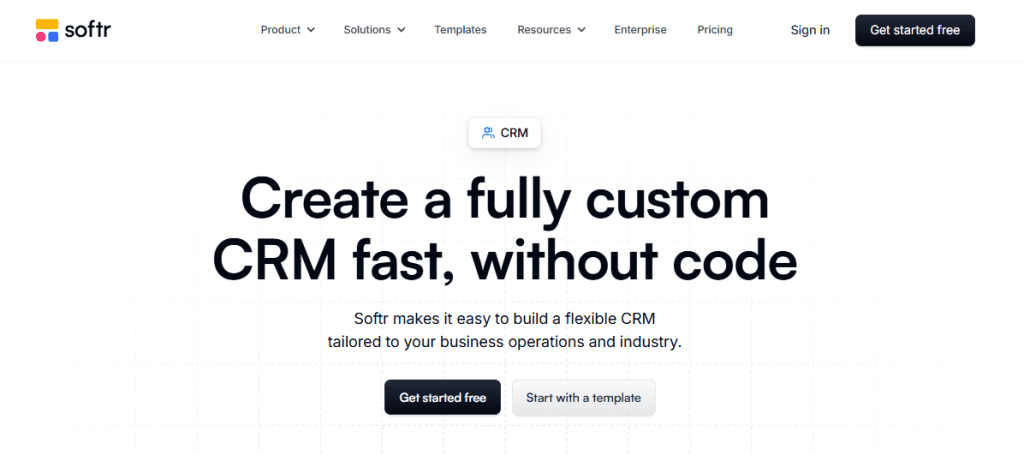
Softr is a flexible no-code CRM builder that empowers businesses to create fully customized CRM systems in minutes—without writing a single line of code. Instead of adapting your workflow to rigid software, Softr adapts to you. Whether you’re managing deals, leads, accounts, or customer support, Softr integrates seamlessly with Airtable, Google Sheets, Notion, and 15+ other data sources.
What sets it apart is its built-in AI chatbot integration, allowing teams to get instant answers directly from their CRM—like pipeline status or account insights. It also offers conditional logic for forms, document management, real-time dashboards, advanced permissions, and seamless automation with tools like Zapier and Make.
Top Features: No-code CRM builder, AI chatbot for CRM data queries, custom dashboards, lead/contact management, quote & invoice generation, document portal, secure access control, native automation & integrations.
Pricing: Free tier available, paid plans start at $49/month with increasing customization, data access, and AI features.
Pros: Extremely customizable without coding, AI assistant included, fast deployment, works with your existing tools, cost-effective for growing teams.
Cons: Advanced CRM features may require external databases (e.g., Airtable), AI chatbot setup requires structured data, not ideal for enterprises needing deep native analytics
How to Choose the Right CRM Software?
Selecting the right CRM software is a strategic decision that can directly impact your sales performance, customer satisfaction, and overall business efficiency.
With so many options on the market, it’s crucial to align your choice with your business goals, workflow, and growth plans.
1. Identify Your Business Needs
Start by clarifying what you want the CRM to accomplish.
Are you focused on lead management, customer service, or marketing automation?
Knowing your core goals helps you prioritize features like AI-powered forecasting, email tracking, or workflow automation. For distributed teams, look for software that integrates with remote employee management software to connect your company’s customer data with tools for communication, project management, and scheduling, enabling a unified view and automated workflows.
2. Evaluate Ease of Use and Adoption
A CRM should simplify processes, not complicate them. Choose a platform with an intuitive interface and minimal learning curve to ensure your team actually uses it.
A simple, visual dashboard (like monday CRM or Pipedrive) can drive faster adoption.
3. Check Integration Capabilities for all the Zoho Crm Alternatives
Your CRM should work seamlessly with your existing tools, email, marketing automation, ERP, accounting, and communication platforms.
Strong integrations reduce manual work and create a connected tech ecosystem that enhances productivity.
4. Compare AI and Automation Features
AI is no longer optional, it’s a competitive advantage. Look for CRMs offering smart lead scoring, predictive analytics, automated task management, and conversational insights.
These features help teams focus on high-value opportunities and close deals faster.
5. Test Before You Commit to find Zoho Crm Alternatives
Most top CRMs offer free trials, use them. Test usability, AI features, integrations, and reporting. Gather feedback from your sales and marketing teams to see which system best fits real-world workflows.
The best CRM for your business is one that simplifies processes, enhances productivity, leverages AI for smarter decision-making, and scales as you grow.
Focus on usability, integrations, automation, and long-term costs, and you’ll be equipped to select a CRM that delivers measurable ROI and drives sustainable growth.
Conclusion
Choosing the right CRM software can transform how your business manages customer relationships, automates tasks, and drives growth.
While Zoho CRM remains a strong option, its complexity, pricing, and limited AI depth make exploring alternatives a smart move, especially for companies focused on scalability and smarter automation.
The seven best Zoho CRM alternatives, monday CRM, Salesforce, Freshsales, HubSpot CRM, Pipedrive, Bitrix24, and Insightly, each bring unique strengths to the table.
Whether you need visual simplicity, advanced AI forecasting, unified communication, or enterprise-level customization, there’s a solution perfectly suited to your goals. Ultimately, the “best” CRM is the one that fits your business model, integrates seamlessly with your existing systems, and empowers your team to work smarter, not harder.
Take advantage of free trials, compare pricing transparently, and focus on the features that align with your long-term strategy. With the right CRM, you’ll not only improve efficiency, but also build stronger, data-driven relationships that fuel growth and customer loyalty.

